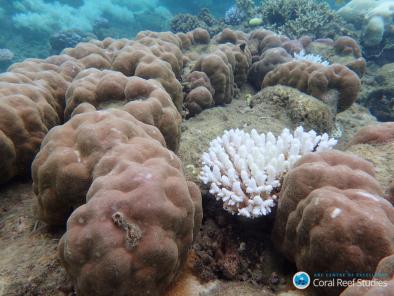There’s only one way to save the Great Barrier Reef, scientists conclude

The only sure way to preserve the world's coral reefs will be to take drastic action to reverse global warming. That's the conclusion of a new analysis of three major die-offs of coral on Australia's iconic Great Barrier Reef (GBR). The study finds that the repeated bleaching expected with climate change will test the reef’s resilience.
The alarming results should be taken "very seriously," says James Guest, a coral reef ecologist at the Hawaii Institute of Marine Biology in Honolulu who was not involved in the study. "The situation looks really grim for the GBR."
...
The bleaching of 2016 was the worst on record, harming at least 85% of the 2300-kilometer-long reef system. Surprisingly, most seriously damaged was the northern half. Being far from shore and the impacts of silty runoff, pollution, and fishing, this stretch of the reef was considered the most pristine, which was thought to make it resistant to bleaching.
In the new study, Terry Hughes, a coral reef ecologist at James Cook University in Townsville, Australia, and his colleagues combined their observations from 2016 with data collected during previous major bleaching events in 1998, which struck 43% of the reef, and in 2002, when 56% of the system was hit. The scientists compared reefs that had bleached zero, one, two, and three times for clues to how corals respond to and recover from the stress.
One prominent idea—that clean water, which keeps coral healthy, reduces the stress of high temperatures—didn't seem to hold true. Peter Steinberg, a marine ecologist at the University of New South Wales in Sydney, Australia, who was not involved in the study, calls the finding "surprising and very worrying." This is particularly significant because scientists consider the GBR to be the world’s best-managed reef.
Related Content



